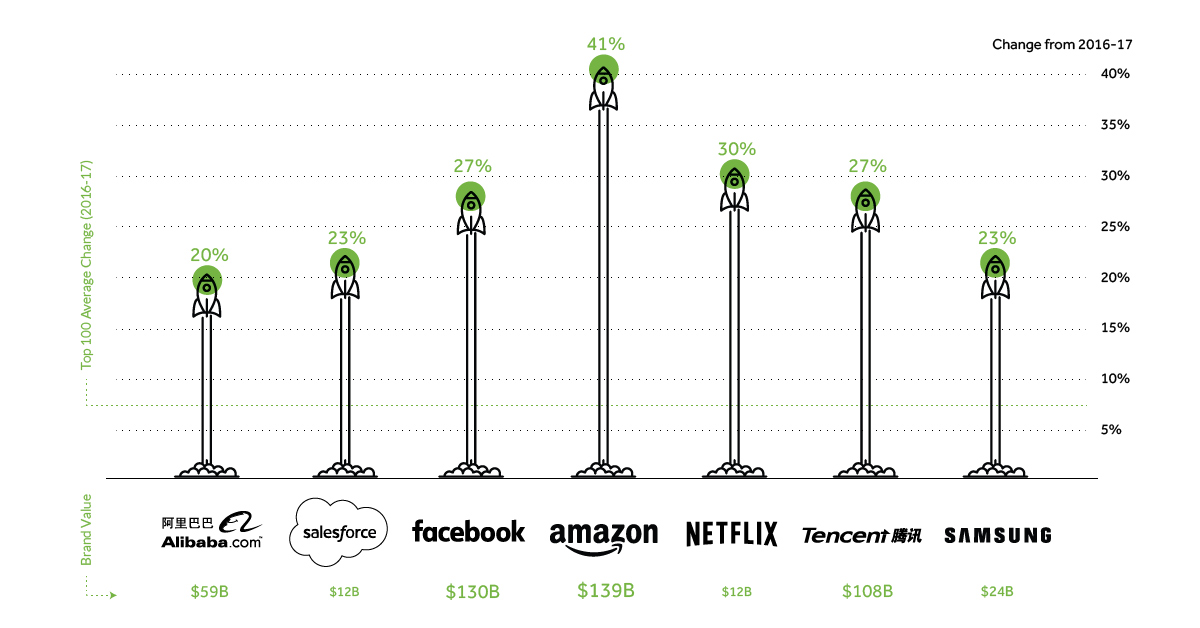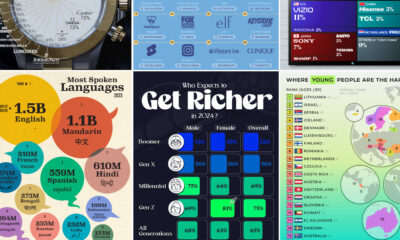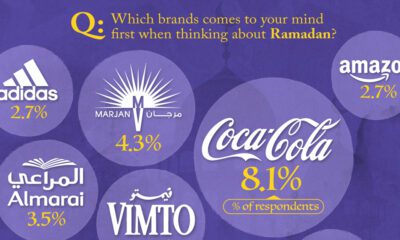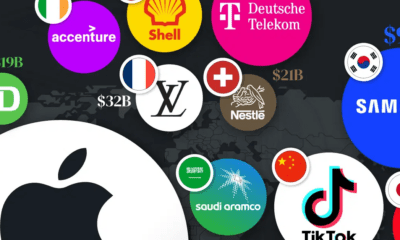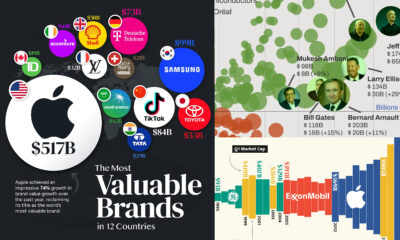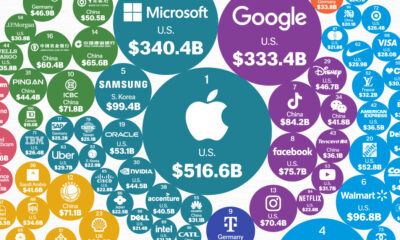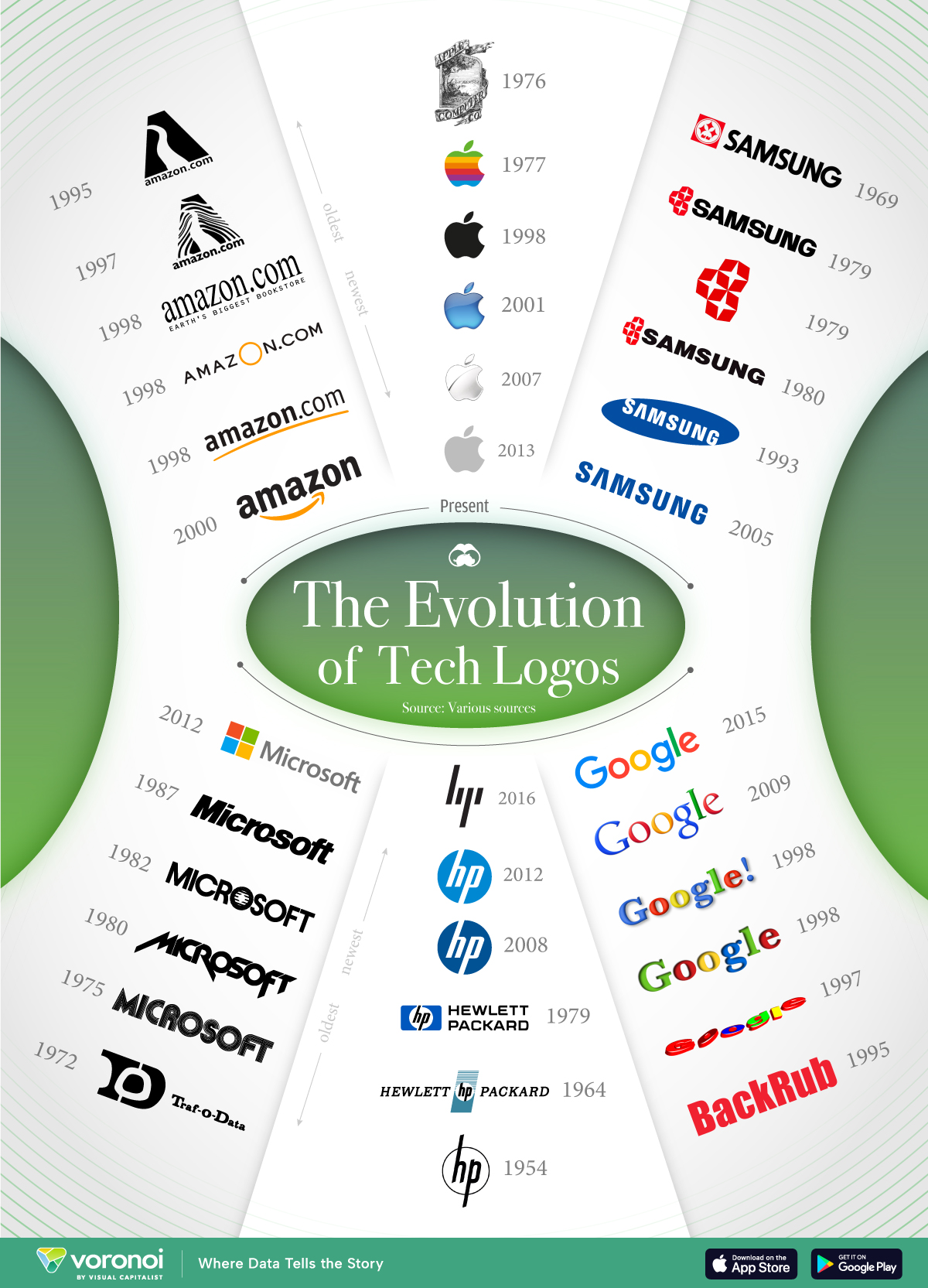Technology
The World’s Fastest Growing Brands in 2017, by Value
The Chart of the Week is a weekly Visual Capitalist feature on Fridays.
In a modern business era of near-constant disruption, which brands are winning the hearts of consumers the fastest?
Today’s charts look at the brands that are trending upwards. See below for the brands that have gained the most in brand value since last year, as assessed by BrandZ in their report on the world’s 100 most valuable brands.
Onwards and Upwards for Tech
As many big name brands try to find their footing in today’s fast-paced consumer environment, it’s not surprising to see up-and-coming tech brands skyrocketing in value.
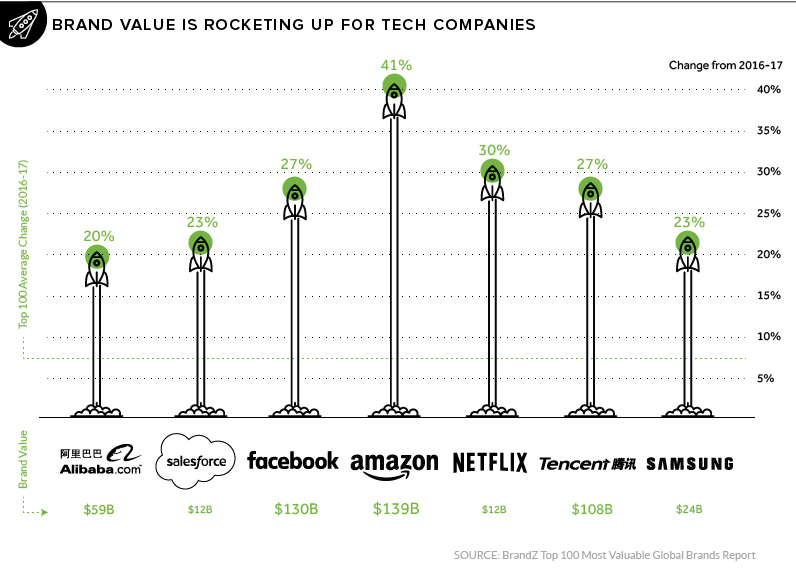
In line with growing revenues, tech brands like Amazon, Facebook, and Netflix are also flying high with their brands. Amazon, for example, had its brand value soar 41% since last year to make it the fourth most valuable brand in the world at $139 billion. Chinese tech companies are gaining traction in the eyes of consumers as well, with Tencent and Alibaba both growing their brand values at clips of 20% or higher.
Note: the measure of “brand value”, not to be confused with company valuation metrics like market cap, is a way of quantifying the dollar value that a particular brand’s image is contributing to the overall value of a corporation.
Other Big Movers
Although tech brands seem to be moving up the list in unison, it’s also worth examining the brands in other sectors that have seen their brand values rapidly increase.
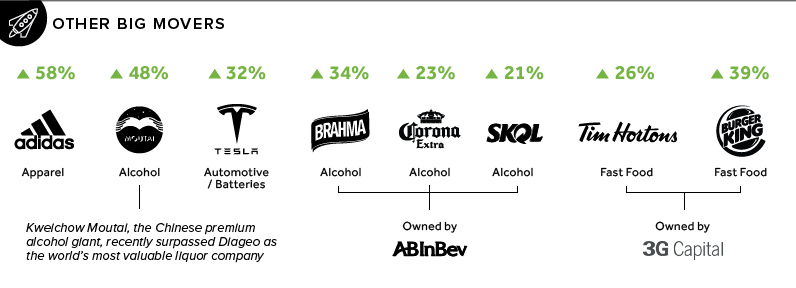
The brands seen here have some interesting commonalities and points worth noting.
Firstly, despite not being a tech brand, Adidas was actually the fastest-growing brand in the whole report with a 58% increase in brand value from 2016 to 2017. According to the analysis, the apparel brand saw its retro sneakers “connect perfectly” with the fashion moment.
Next, alcohol brands also generally performed admirably. Three of the brands that had double-digit growth were owned by the world’s largest beer company, AB InBev – and two of those brands (Skol and Brahma) are Brazilian. Further, Kweichow Moutai, a Chinese liquor maker that surpassed Diageo earlier this year in market capitalization, is also rising fast.
Also of interest is that two 3G Capital restaurant brands, Burger King and Tim Horton’s, happened to increase substantially in brand value. Of course, 3G Capital owns a stake in the aforementioned AB InBev as well.
New Entrants
The following brands are the newest entrants on the 2017 edition of the top 100 list:

However, as we transition into 2018, these new entrants may have very different fortunes ahead of them.
On one hand, Salesforce has been outlining when it’ll hit $20 billion in sales, and Netflix is still crushing expectations for subscription growth.
On the opposite side of the spectrum, Snap Inc. recently reported slow user growth, which made shares tumble 18% in value. The company’s platform, Snapchat, is locked in a battle with Instagram for users, and it remains to be seen how this will affect both company and brand values down the road.
Brands
How Tech Logos Have Evolved Over Time
From complete overhauls to more subtle tweaks, these tech logos have had quite a journey. Featuring: Google, Apple, and more.
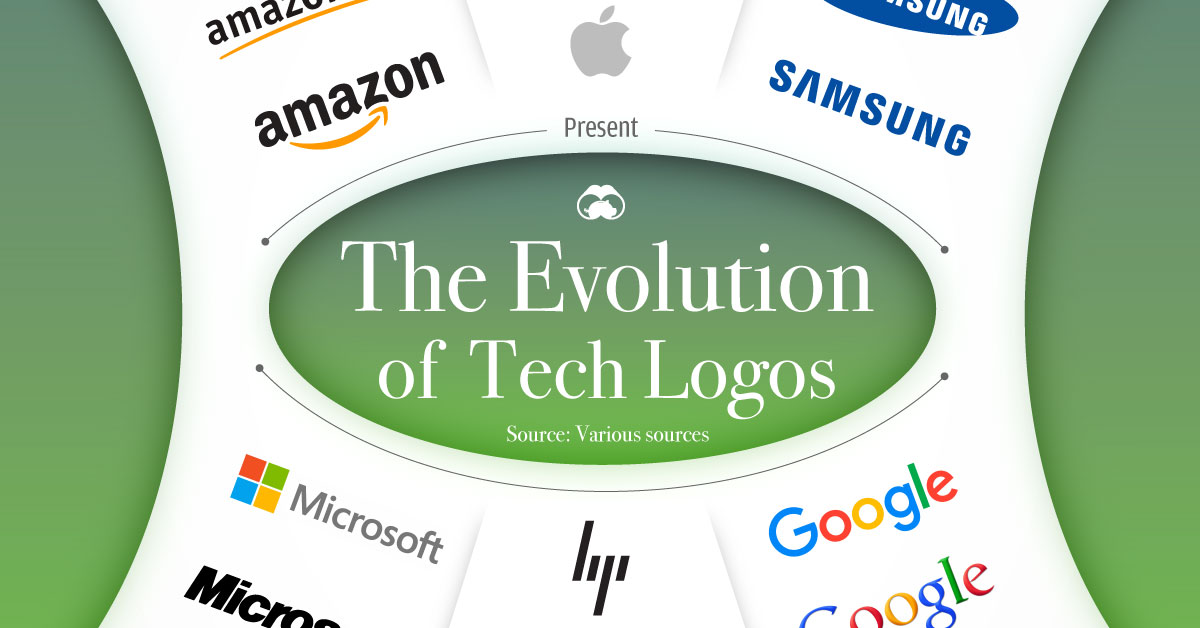
How Tech Logos Have Evolved Over Time
This was originally posted on our Voronoi app. Download the app for free on iOS or Android and discover incredible data-driven charts from a variety of trusted sources.
One would be hard-pressed to find a company that has never changed its logo. Granted, some brands—like Rolex, IBM, and Coca-Cola—tend to just have more minimalistic updates. But other companies undergo an entire identity change, thus necessitating a full overhaul.
In this graphic, we visualized the evolution of prominent tech companies’ logos over time. All of these brands ranked highly in a Q1 2024 YouGov study of America’s most famous tech brands. The logo changes are sourced from 1000logos.net.
How Many Times Has Google Changed Its Logo?
Google and Facebook share a 98% fame rating according to YouGov. But while Facebook’s rise was captured in The Social Network (2010), Google’s history tends to be a little less lionized in popular culture.
For example, Google was initially called “Backrub” because it analyzed “back links” to understand how important a website was. Since its founding, Google has undergone eight logo changes, finally settling on its current one in 2015.
| Company | Number of Logo Changes |
|---|---|
| 8 | |
| HP | 8 |
| Amazon | 6 |
| Microsoft | 6 |
| Samsung | 6 |
| Apple | 5* |
Note: *Includes color changes. Source: 1000Logos.net
Another fun origin story is Microsoft, which started off as Traf-O-Data, a traffic counter reading company that generated reports for traffic engineers. By 1975, the company was renamed. But it wasn’t until 2012 that Microsoft put the iconic Windows logo—still the most popular desktop operating system—alongside its name.
And then there’s Samsung, which started as a grocery trading store in 1938. Its pivot to electronics started in the 1970s with black and white television sets. For 55 years, the company kept some form of stars from its first logo, until 1993, when the iconic encircled blue Samsung logo debuted.
Finally, Apple’s first logo in 1976 featured Isaac Newton reading under a tree—moments before an apple fell on his head. Two years later, the iconic bitten apple logo would be designed at Steve Jobs’ behest, and it would take another two decades for it to go monochrome.
-

 Green1 week ago
Green1 week agoRanked: The Countries With the Most Air Pollution in 2023
-

 Automotive2 weeks ago
Automotive2 weeks agoAlmost Every EV Stock is Down After Q1 2024
-
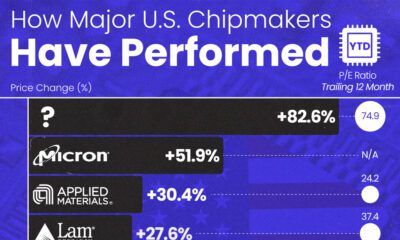
 AI2 weeks ago
AI2 weeks agoThe Stock Performance of U.S. Chipmakers So Far in 2024
-

 Markets2 weeks ago
Markets2 weeks agoCharted: Big Four Market Share by S&P 500 Audits
-

 Real Estate2 weeks ago
Real Estate2 weeks agoRanked: The Most Valuable Housing Markets in America
-

 Money2 weeks ago
Money2 weeks agoWhich States Have the Highest Minimum Wage in America?
-

 AI2 weeks ago
AI2 weeks agoRanked: Semiconductor Companies by Industry Revenue Share
-

 Travel2 weeks ago
Travel2 weeks agoRanked: The World’s Top Flight Routes, by Revenue

